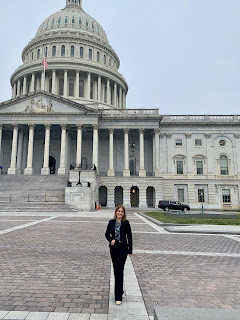Growing
up in a small town in Iowa, agriculture was all around me. My family raises cattle,
has 300 acres of row crop and shows pigs. Agriculture is part of our livelihood
and I saw, first-hand, the time, commitment and care that my family and so many
others in our community put into growing food and raising healthy animals.
That’s why it’s so important we continue to ensure our U.S. hog herd remains safe,
for the livelihood of farmers and consumers around the globe.
African
swine fever (ASF), a disease affecting only pigs with no human or food safety
risks, is spreading throughout China, Southeast Asia and Europe. The most
likely path for ASF or other foreign animal diseases (FADs) to enter the
country would be through the importation of infected animals or contaminated,
contraband products. An outbreak of certain FADs would immediately close U.S.
pork export markets, with significant harm to our farmers, consumers and
overall economy.
While
the U.S. Department of Agriculture (USDA) and U.S. Bureau of Customs and Border
Protection (CBP) are doing an excellent job of protecting America’s borders and
ports, we must continuously strive to strengthen biosecurity. For more than a
year, the National Pork Producers Council (NPPC) has led efforts to boost
biosecurity at our borders, working with lawmakers and administration officials
on funding for additional agricultural inspectors. In an important milestone in
NPPC’s efforts, Congress recently passed legislation (S. 2107), which
authorizes funding for 720 new agricultural inspectors at land, air and sea
ports to prevent ASF and other FADs from entering the United States. That will
help protect the U.S. swine herd and ensure that the farms in my community and
around the country are able to continue to provide healthy, safe pork to
consumers domestically and around the world.
USDA
and CBP agricultural inspectors are our first line of defense against ASF and
other FADs. Hog farmers across this country, in communities just like mine, are
producing safe, nutritious and affordable pork. On this National Agriculture
Day—and every day—let’s continue to remain vigilant to ensure the number one
preferred protein in the world remains plentiful and safe.

